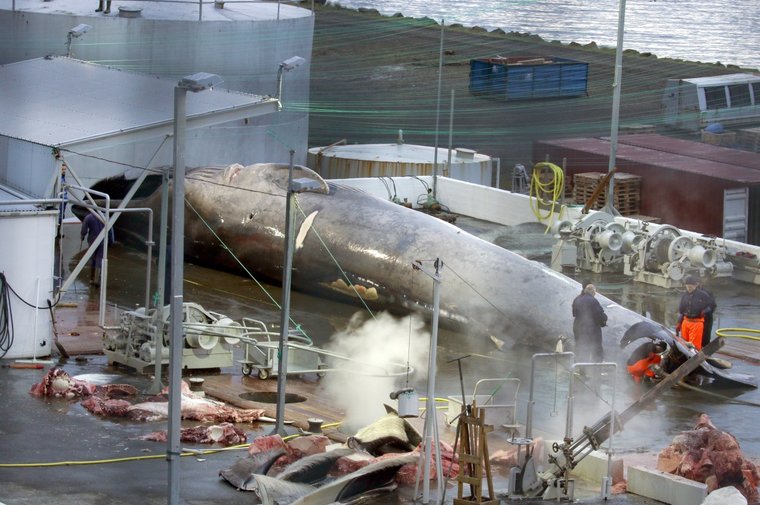Iceland will allow more than 2,000 whales to be killed within next five years

By Lauren Kent
23 February 2019
(CNN) – Only two whaling companies remain in Iceland. It’s a small industry that conservationists say is inhumane, has minimal economic benefits, and defies the international ban on killing whales.
But this week the Icelandic government announced it will allow up to 2,000 whales to be killed in the next five years.
A Ministry of Fisheries and Agriculture statement released Tuesday said a maximum of 209 fin whales and 217 minke whales can be killed each year between 2018 and 2025.
Iceland’s Fisheries Minister Kristján Þór Júlíusson said the new whale quotas are sustainable and based on research from the nation’s Marine Research Institute and the University of Iceland.
“Whaling in Icelandic waters is only directed at abundant whale stocks, North Atlantic common minke whales and fin whales, it is science-based, sustainable, strictly managed and in accordance with international law,” a ministry spokesperson said in a statement.
But activists and conservationists disagree. The Icelandic Environmental Association criticized the research on which the Fisheries Ministry based its quotas.
And Whale and Dolphin Conservation (WDC), an organization aimed at protecting whales around the world, said whaling is no longer beneficial to Iceland’s economy and lacks public support.
“This is a country that’s embraced whale watching and has a different relationship with whales now,” WDC spokesman Chris Butler-Stroud told CNN. “The reality is, the whale meat that’s being consumed there is mostly by tourists, unfortunately. … If it was down to local consumption, this probably would be dead in the water.”
A report from the University of Iceland said whale watching contributed $13.4 million to the economy, while the whale hunting company Hval hf. Contributed $8.4 million. According to the report, more people are employed in whale watching than in whaling, but wages are higher in whale hunting. [more]
Iceland will allow more than 2,000 whales to be killed within next five years
Suggest you put up redirect links in your .htaccess file for all past article links. They’re virtually broken now (all the ones I’ve tried). You will also help preserve search engine rankings if you do this.
Please consider Wordfence Security (wordpress plugin) to help you manage hacks, attacks, and so much more. It’s free, considered 1000% absolutely essential by wordpress bloggers.
Akismet is another wordpress blog free plugin, will help you deal with spam.
Google Captcha is another wordpress free plugin, will ensure humans are actually posting or commenting.
WordPress has an enormous amount of free and very useful plugins to help better run and manage a blog.
Will do, thank you for the tips! This WordPress n00b definitely needs them.
UPDATE: Installed all of these plugins, thanks again for the guidance!